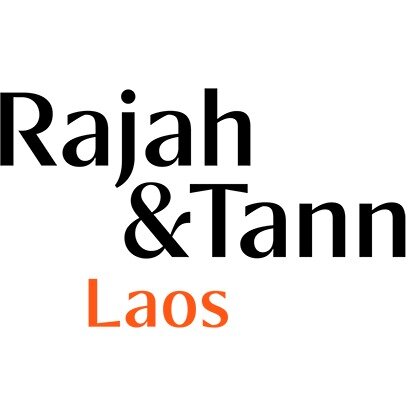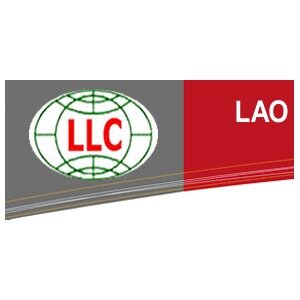Best Investment Lawyers in Laos
Share your needs with us, get contacted by law firms.
Free. Takes 2 min.
Or refine your search by selecting a city:
List of the best lawyers in Laos
About Investment Law in Laos
In Laos, the Investment Law provides the framework for both domestic and international investments. This law was passed in 2016 with the primary goal of encouraging and promoting investments that contribute to the socio-economic development of the country. These Provisions include protection of investor rights, simplifying investment procedures, and promoting competition among businesses. In essence, it aims to foster a business-friendly environment that will attract more foreign investors.
Why You May Need a Lawyer
Investing in Laos, like other foreign countries, involves dealing with different laws and regulations. It is advisable to use a lawyer to ensure that all legal procedures are followed correctly. This is particularly critical for foreign investors tackling language barriers and unfamiliar governmental processes. In addition, a lawyer can clarify the implications of investment laws, assist in disputes, and safeguard your interests in contractual agreements. They can also keep you informed of any changes in the relevant laws that could affect your investment.
Local Laws Overview
The investment law in Laos emphasizes three types of investment: domestic, foreign, and concessional. It has simplified procedures for general businesses, while promoting ease of operation and competitiveness. The law guarantees the rights and interests of investors, and investors are given several benefits such as tax incentives, protection against illegal expropriation of property, and the right to repatriate capital and profits. However, these benefits may vary depending on the nature and scale of the investment project. There are also laws governing the land use rights, intellectual property, and dispute resolution mechanisms applicable to investors.
Frequently Asked Questions
1. Can foreigners own land in Laos?
Foreign individuals and corporations cannot directly own land in Laos. However, they may acquire land use rights, which can be transferred or leased under specific circumstances.
2. What are some of the incentives for investing in Laos?
The government offers several tax benefits and exemptions depending on the nature and size of the investment, particularly for investments in promoted sectors or remote areas.
3. Are there any restrictions on repatriating profits from Laos?
Under the Investment Law, investors have the right to repatriate capital and profits after fulfilling tax obligations. The exact procedures and regulations can be complex, so it's advisable to consult with a legal expert.
4. Can foreigners engage in all types of business activities in Laos?
Most sectors are open to foreign investment. However, some are reserved for State or domestic businesses, while others may require a domestic partner. Again, legal advice is recommended.
5. What is the minimum capital requirement for foreign investors?
The minimum capital requirement varies depending on the nature of the business. There are different minimum investment requirements for general business activities, concession businesses, and SMEs.
6. Is arbitration an accepted method of dispute resolution in Laos?
Yes, the law provides for dispute resolution through negotiation, conciliation, arbitration, or litigation. Certain investment agreements may require arbitration as the method of dispute resolution.
7. How is intellectual property protected in Laos?
Laos has laws protecting Intellectual Property rights, and is a member of the World Intellectual Property Organization (WIPO) and other international IP treaties.
8. What is the role of the Lao National Chamber of Commerce and Industry (LNCCI) in investment?
The LNCCI advocates business interests, provides advises on policy, and facilitates networking between its members and government bodies.
9. Can foreigners obtain long-term residence in Laos based on investment?
While investment can facilitate visa acquisition, residency is generally not granted purely on the basis of investment. It's best to consult with a local legal expert for accurate information.
10. Does Laos have double tax avoidance agreements?
Yes, Laos has double tax avoidance agreements with several countries to prevent investors from being taxed in two jurisdictions.
Additional Resources
For those in need of legal advice, various resources are available. These include the Lao National Chamber of Commerce and Industry (LNCCI), the Ministry of Planning and Investment, and the Laotian department of the Asian Development Bank. You can also consult with private law firms specializing in Laotian investment law for specific advice.
Next Steps
If you need legal assistance in investment in Laos, start by identifying and contacting a reputable law firm experienced in this area. They can guide you through the investment process, explain the relevant laws, assist with documentation, and help to protect your rights as an investor. Be prepared to provide them with specific details about your proposed investment to get the most relevant and helpful advice.
Lawzana helps you find the best lawyers and law firms in Laos through a curated and pre-screened list of qualified legal professionals. Our platform offers rankings and detailed profiles of attorneys and law firms, allowing you to compare based on practice areas, including Investment, experience, and client feedback.
Each profile includes a description of the firm's areas of practice, client reviews, team members and partners, year of establishment, spoken languages, office locations, contact information, social media presence, and any published articles or resources. Most firms on our platform speak English and are experienced in both local and international legal matters.
Get a quote from top-rated law firms in Laos — quickly, securely, and without unnecessary hassle.
Disclaimer:
The information provided on this page is for general informational purposes only and does not constitute legal advice. While we strive to ensure the accuracy and relevance of the content, legal information may change over time, and interpretations of the law can vary. You should always consult with a qualified legal professional for advice specific to your situation.
We disclaim all liability for actions taken or not taken based on the content of this page. If you believe any information is incorrect or outdated, please contact us, and we will review and update it where appropriate.
Browse investment law firms by city in Laos
Refine your search by selecting a city.












